Recognizing Outstanding Service to University Senate Governance
The Outstanding Service to University Senate Governance Recognition honors faculty, P&A, and civil service employees who have made a significant impact on University Senate governance. This year’s recipients are Mia Boos, Emily Hoover, and Raymond Muno.
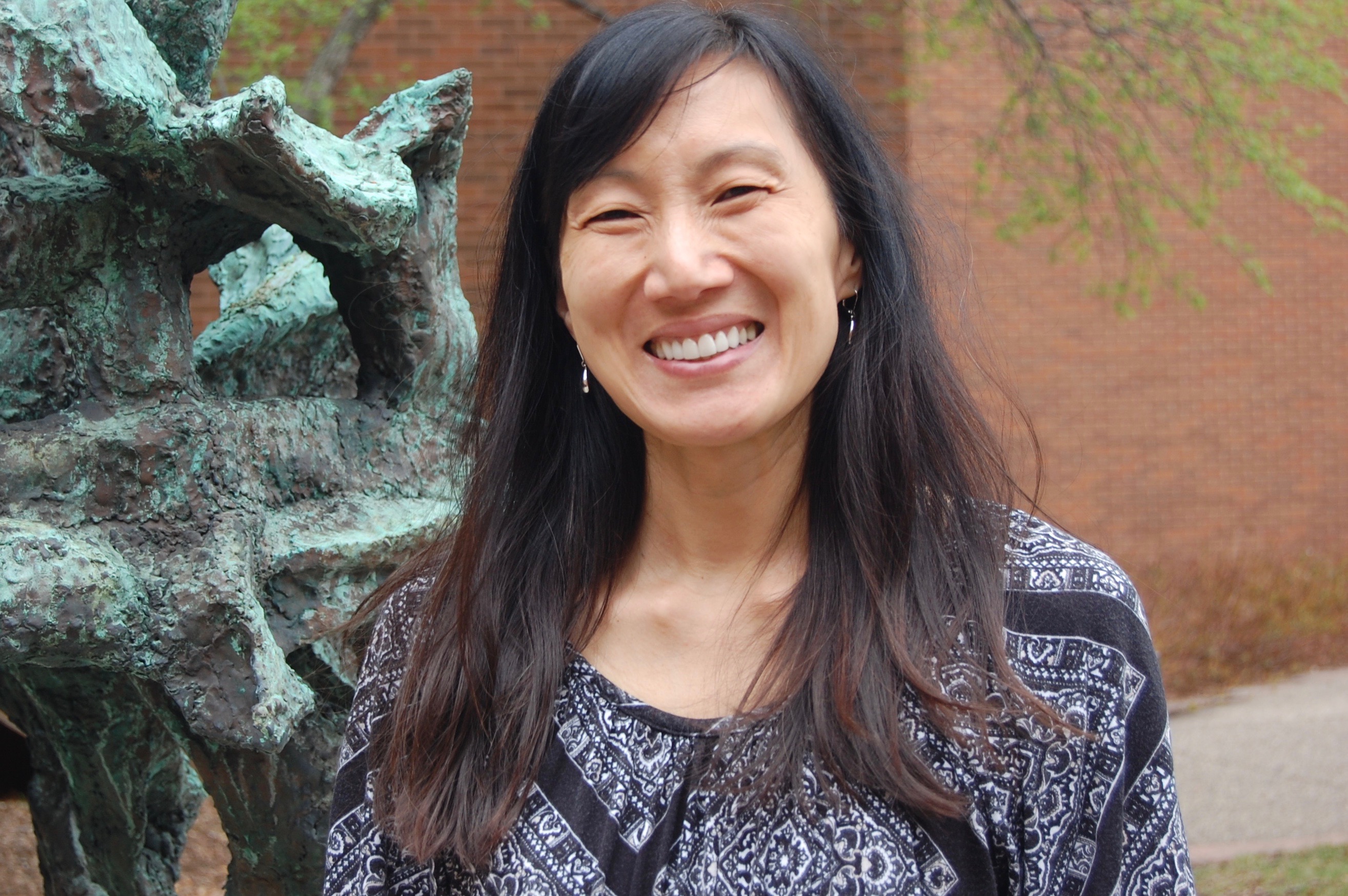
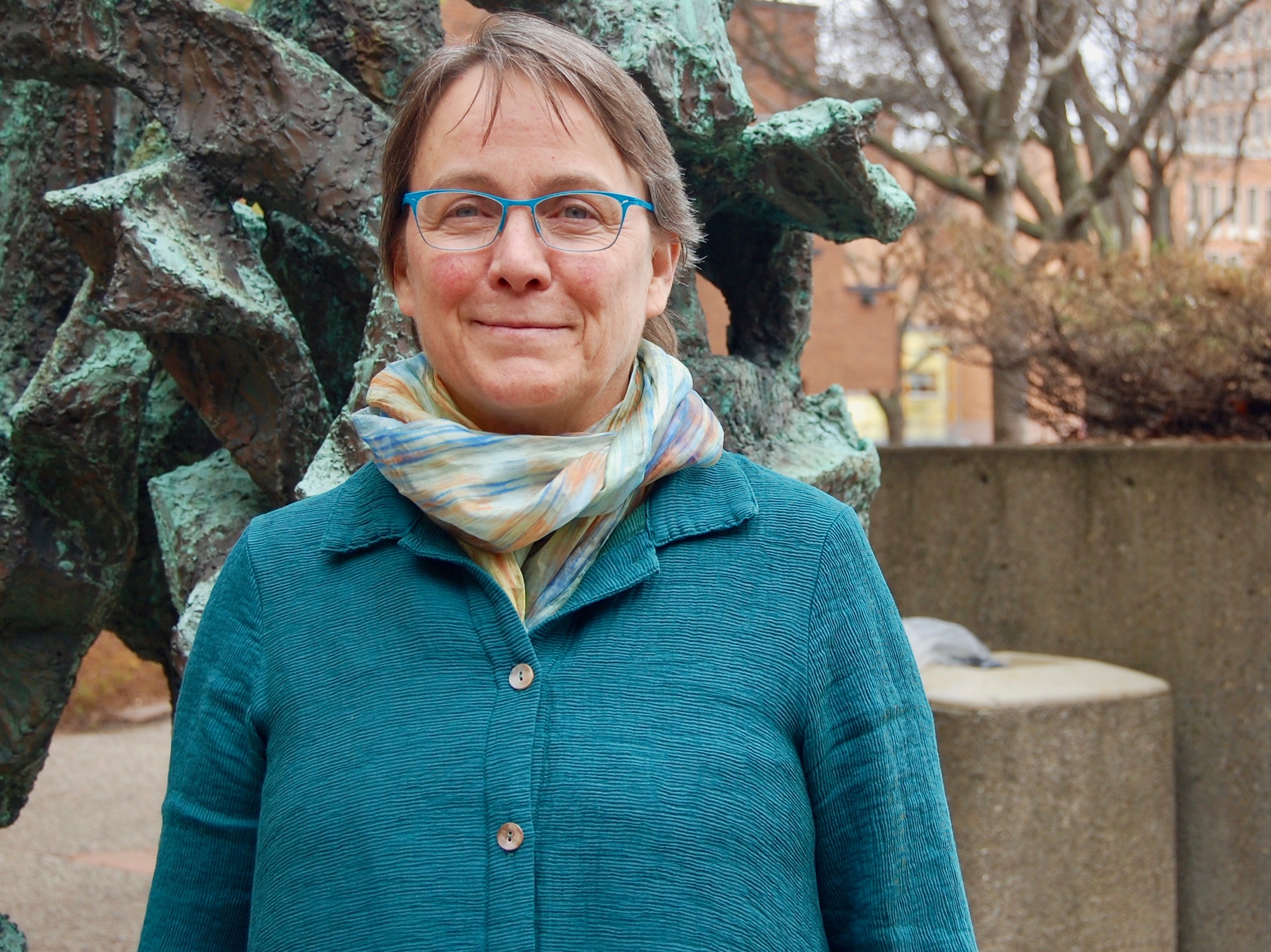
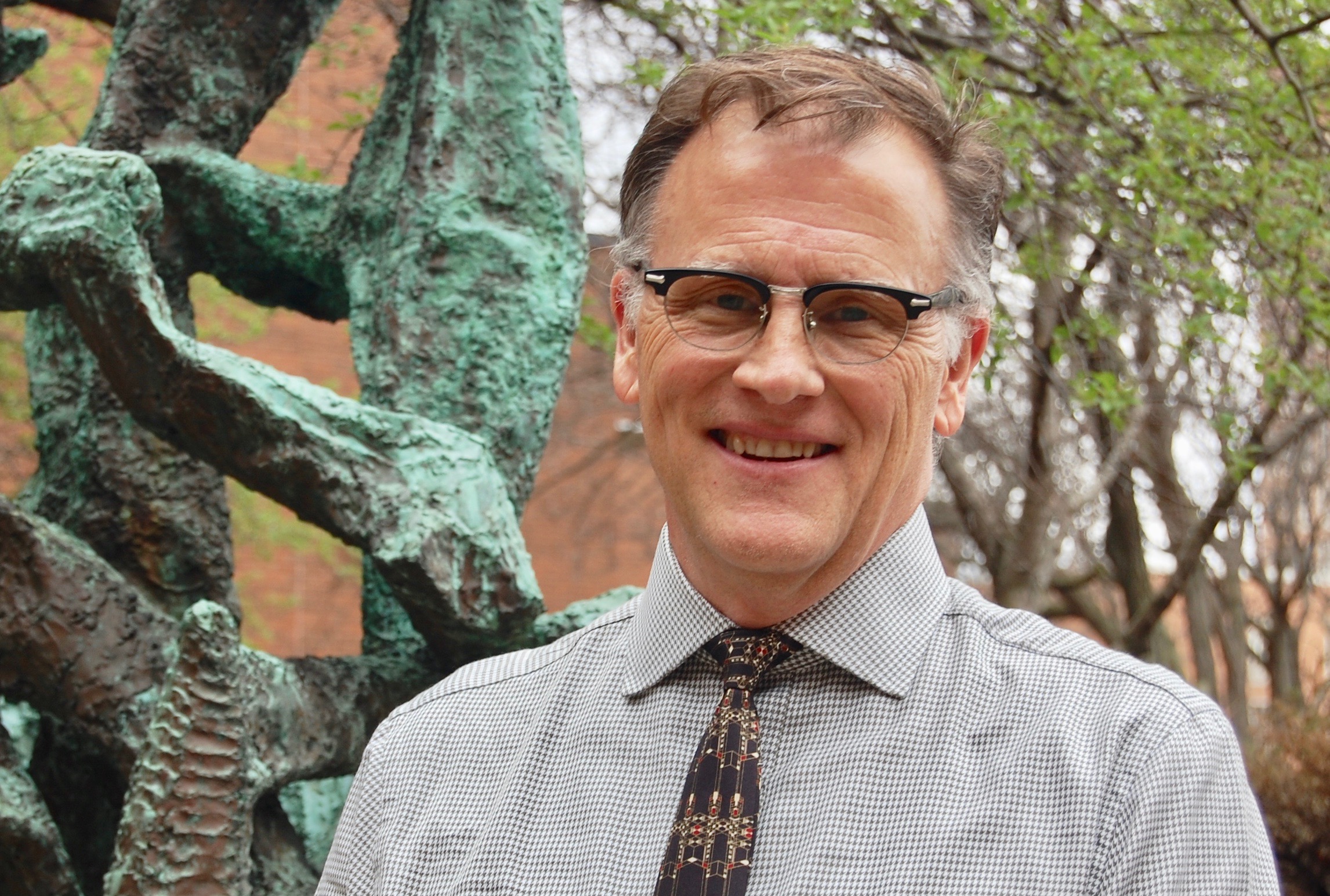
University Senate Governance Working for U
Each senate has an executive—or "consultative"—committee. Members of the consultative committees are elected to represent the respective bodies.
Faculty Consultative Committee
Spring semester has been exceptionally busy for the Faculty Consultative Committee (FCC), which has been dealing with a wide range of issues and topics. An item of business at the forefront of the committee’s agenda over the past few months has been, and continues to be, the aftermath of the Report of the Task Force for Building Names and Institutional History, which went to the Board of Regents for information in March. In response to the Board’s discussion of the report at its March 8 meeting, the FCC drafted a letter calling for a special session to be held in a neutral environment. The FCC continues to work with senior leaders on next steps to move this matter forward in an amicable and respectful way. Additionally, the administration consulted with the FCC on several policies, including Equity and Access: Gender Identity, Gender Expression, Names and Pronouns and Hiring Faculty and Staff. The FCC also weighed in on and endorsed the Lactation Support Policy Resolution and the Resolution on Education Around Best Practices for Disability Accommodations and Support for Students with Disabilities.
Other items that came before the committee included the upcoming structural changes to the University’s retirement plans, given the University’s decision to move to a single recordkeeper (Fidelity Investments); the Research & Technology Commercialization 2018 Annual Report; and a summary of the themes that came out of the forums hosted by the Institute for Advanced Study (IAS). These forums focused on University values, University governance, and the University budget, and were intended to be forward thinking and informative for President-Designate Joan Gabel. The FCC also visited the Rochester campus in April and met with their tenured/tenure-track faculty, student-based faculty, and students. Rochester representation on senate committees was another major discussion topic during the visit. Finally, the FCC continues to look at its own membership composition and whether its membership should be broadened.
Student Senate Consultative Committee
The Student Senate Consultative Committee (SSCC) and Student Senate addressed a variety of issues this semester and met with a variety of personnel University-wide. Topics included a discussion with the co-chair of the President's Initiative to Prevent Sexual Misconduct (PIPSM), Professor Karen Miksch, on the progress and impact the initiative has had on the Twin Cities campus. Miksch said that the mission of the initiative is to "create a healthy culture and a climate of respect at the University of Minnesota to prevent sexual misconduct." PIPSM recommended several actions to help prevent sexual misconduct, including faculty and staff required training, department level culture development, a public health awareness campaign (It Ends Here), student education and engagement, research and evaluation, and institutional responsibility and accountability.
Additionally, at its March meeting, the Student Senate heard from Kelly Wallin, SSCC member and one of the two student members on the Task Force on Building Names and Institutional History. The task force was charged to look at four buildings on the Twin Cities campus—Coffman Memorial Union, Nicholson Hall, Coffey Hall, and Middlebrook Residence Hall—and the history of the individual for whom they were named. Wallin provided insight into the task force’s inner workings and the reasons behind its recommendation to rename the four buildings. Student senators were given an opportunity to provide feedback about the task force’s report as well as the initial reactions from the Board of Regents.
Civil Service Consultative Committe
The Civil Service Consultative Committee (CSCC) began the spring semester with public hearings on changes to the Civil Service Employment Rules. The rules were updated to align with the new Administrative Policy: Parental Leave for Employees, which took effect in April 2018. The committee also met with President Eric Kaler to discuss the presidential transition, funding from the legislature, and how he thinks governance can best engage a new administration and the Board of Regents (BOR). The committee continued to discuss how to engage the BOR throughout the spring, and recently invited Brian Steeves, executive director and corporate secretary, Office of the Board of Regents, to the May 2, 2019, Civil Service Senate meeting to discuss how civil service governance can best work with the BOR. Chair-Elect Jean Otto convened a working group to review the Civil Service Senate Constitution, Bylaws and Rules, including reviewing the size and scope of the Civil Service Senate and Civil Service Consultative Committee, and how often the groups meet. CSCC leadership finished up the year with a visit to the Rochester campus, where they met with Chancellor Lori Carrell to discuss issues facing civil service employees, and met with constituents to hear concerns. Terry Beseman has been named chair-elect for the 2019-20 academic year. The committee looks forward to another productive year.
P&A Consultative Committee
The P&A Consultative Committee (PACC) had a busy and productive semester. Chair Ian Ringgenberg spoke with President-Designate Joan Gabel a number of times, and said he is looking forward to her fresh perspective and leadership. PACC leadership is working to foster a closer relationship with the Office of the President through regular meetings with Brianne Keeney, deputy chief of staff for policy and initiatives. In April, Ringgenberg, along with leadership from the Civil Service Senate, visited the Rochester campus, where they met with Chancellor Lori Carrell and held a well-attended constituent meeting. At its April meeting, the P&A Senate elected Erin Heath to serve as chair-elect for the 2019-20 academic year.
The Benefits and Compensation Subcommittee (B&C) tackled some tough topics this semester, including merit pay, nine- and ten-month contracts, and improving their working relationship with the Office of Human Resources. Through PACC, they provided feedback on a number of important policies, including Regents Scholarship Program; Family and Medical - FMLA Leave; and Vacation Leave for Faculty and Academic Professionals and Administrators.
The Communications Subcommittee put into place a strategic communications plan that has galvanized interest around connecting with a larger number of P&A staff members. In addition to their monthly newsletters, the subcommittee provides short summaries of P&A Senate meetings for senators to distribute to constituents, which has increased engagement between senators and constituents.
The Outreach Subcommittee successfully arranged to have a P&A senator or alternate at all New Employee Welcome events during the academic year. Outreach also led the charge to update and revise the P&A Senate Constitution, Bylaws, and Rules; the updates garnered a resounding yes vote at the April P&A Senate meeting.
The Professional Development and Recognition Subcommittee (PD&R) drew in successively larger audiences with each of their Brown Bag lunch events. Topics covered were leveraging positivity, Generation Z, and emotional intelligence. PD&R also continued its work on closed captioning all the Brown Bag events, which are available for viewing on YouTube. The Office for Public Engagement (OPE) received this year’s P&A Senate Outstanding Unit Award. The OPE was celebrated at the final P&A Senate meeting of the academic year, and was awarded a $1,000 professional development grant.
A View from the Inside
Advocating to Meet Basic Student Needs
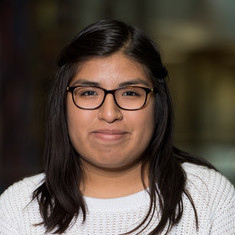
Chair, Student Senate and Student Senate Consultative Committee
What does it mean to be a student at the University of Minnesota when you’re too busy thinking about where your next meal will come from to focus on your studies? How is it possible to study for your upcoming midterm or go to your professor’s office hours when you don’t know how you will make it through the next week with enough meals to get by? Rising costs of college, the stress of an academic course load, and the inability to be sure of how to fund your food can lead to a number of consequences. Research shows that college food insecurity is linked to fair or poor mental and physical health1, lower grade point averages2, and higher dropout rates3.
What can the University do to respond to these needs? Whether it’s Champ’s Cupboard on the Duluth campus or the Nutritious U Food Pantry on the Twin Cities campus, the University has begun to respond to the issue of food insecurity students face in their day to day lives. Meanwhile, students on the Rochester campus have continued to advocate for a solution to help students who live on the Rochester campus, which currently meets the criteria to be labeled a food desert. Others, like the Crookston and Twin Cities campuses, have looked at their dining services to ensure the options available provide adequate services for all students who eat there.
As I’ve observed students across the system advocate to ensure their campus has adequate food services and quality, I’ve noticed how much this issue needs to be talked about. When we joke about a college student eating only instant ramen for a week, there is a bigger issue we are avoiding discussing. It shouldn’t be embarrassing to look for help in finding healthy food that meets your dietary restrictions. Talking about this issue can change that. In the fall of 2018, I began to work with the Student Advisory Council to the Office of Higher Education to create a plan to bring awareness to this issue and change the narrative. We spent the year learning about the work that was being done across the state to address food insecurity and learned about the services the Office of Higher Education offers students to help meet basic needs. We will be responding with our advocacy. As student representatives from the UMN system, the Minnesota State system, and the private college system, we want to bring the conversation of college food insecurity to the larger Minnesota community. Currently, we are working to draft a proclamation for the governor to declare a college food insecurity day this coming fall. Alongside that, we are putting together stories from our colleges to share to the broader community and further the conversation on what it means to be food insecure in college.
1Food insecure student clients of a university-based food bank have compromised health, dietary intake and academic quality. Farahbakhsh J., et al. 2017.
2The prevalence of food security and insecurity among Illinois university students. Morris, LM., et al. 2016.
3Food insecurity: is it an issue among tertiary students? Gallegos, D., et al. 2014.
The Big Issues
The work of the University and Faculty Senates is accomplished primarily through their 22 standing committees, as well as numerous subcommittees and task forces. Faculty, academic professionals, civil service staff, students, alumni, and administrators have designated positions on most committees.
Coach/Faculty Conversation
On April 22, 2019, the Faculty Academic Oversight for Intercollegiate Athletics Committee (FAOIAC) and the Intercollegiate Athletics Committee (IAC) hosted their spring semester Coach/Faculty Conversation Series. The main purpose of this conversation series is to build bridges and more fully integrate academics and athletics. The conversation on the 22nd, attended by 65 head coaches, faculty, and administrators, was kicked off with comments by Professor Timothy LaPara, FAOIAC and IAC chair, President Eric Kaler, and Mark Coyle, athletics director. The program featured an overview of the FAOIAC’s policy, Contact and Obtaining Information about a Student-Athlete’s Academic Progress for Faculty, Instructors, Staff and Coaches and the IAC Statement on Integrating Academics and Athletics. The policy was created in 2003 in response to an academic scandal in the Athletics Department. While not intended, the message created an environment where coaches believed that they were to have no contact with faculty whatsoever. The intent of the policy was not to disallow coaches from speaking to faculty at all, but only from contacting faculty directly to obtain information about student-athletes. The policy also prohibited faculty from contacting coaches directly to obtain information about student-athletes. By 2012, the athletics committee learned enough about this miscommunication that it created the Statement on Integrating Academics and Athletics, which encouraged positive contact between athletic administrators and coaches, and integrating them into the University governance structure so that they were no longer isolated from the broader University community. In addition to this statement, the FAOIAC and IAC, with the support of the Office of the President, created the Coach/Faculty Conversation Series, where faculty and coaches come together to discuss topics of common interest. They often find they have more things in common than differences. A fruitful discussion ensued following the presentation.
Disabilities Issues Resolution
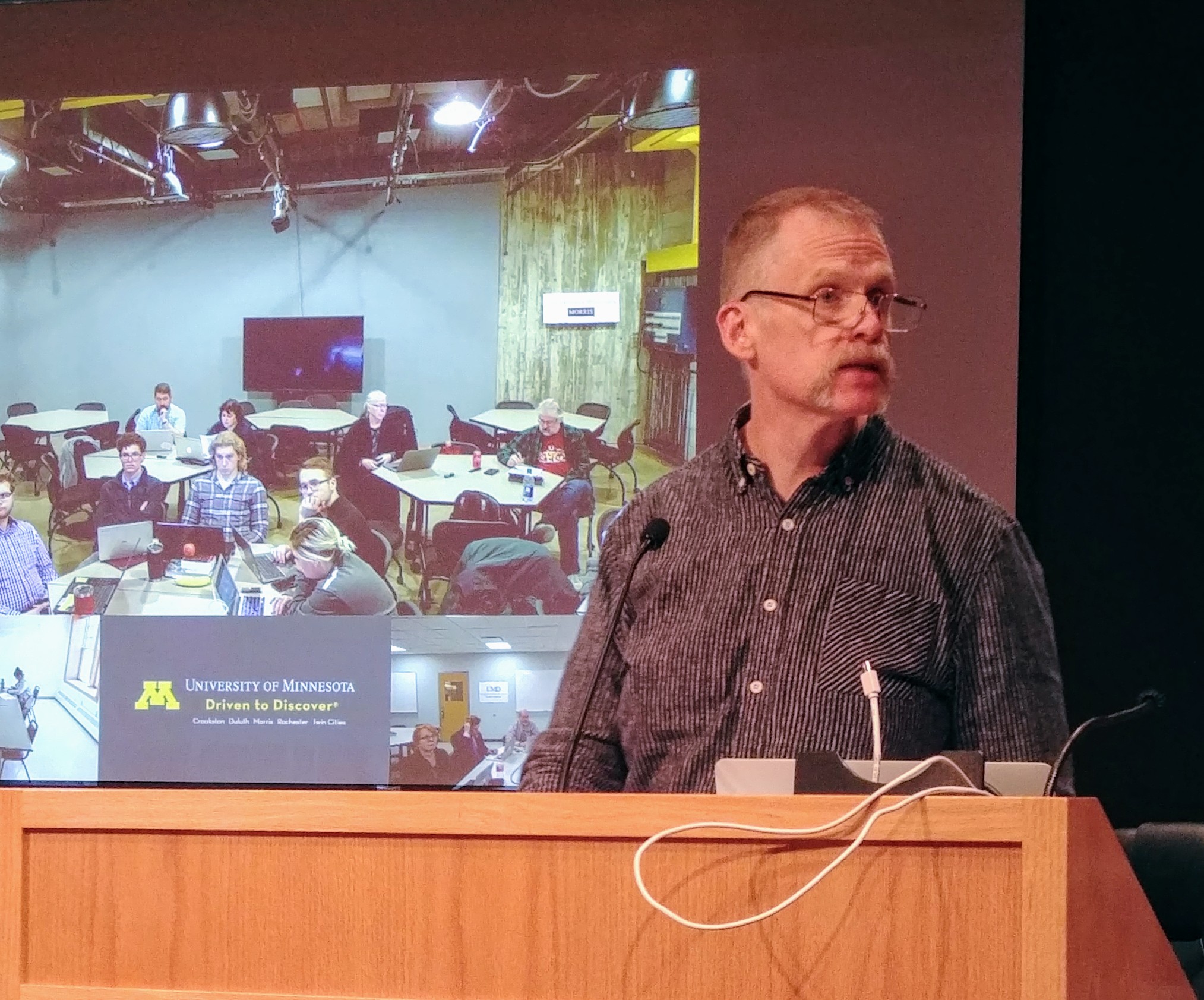
Voter Registration Resolution
Earlier this spring, students from the Twin Cities campus organized a grassroots effort to increase voter registration among new undergraduate students attending the University. Christina Laridaen, government and legislative affairs coordinator for the Minnesota Student Association (MSA), brought forward a resolution seeking to institutionalize the process of registering new students who are eligible to vote in the State of Minnesota. Laridaen said that the purpose of the resolution is to prompt incoming students to register to vote when first registering for their classes. Due to the current use of paper registration forms, voter outreach is currently an outdated endeavor and lacks many privacy controls. The resolution aims to promote student privacy and streamline registration through the Secretary of State’s office. The resolution was unanimously passed by the Student Senate and has broad bipartisan support from student groups such as the College Republicans, College Democrats, and the Minnesota Bipartisan Issues Group. By bringing the issue to the Student Senate, it is the hope that voter registration will be institutionalized on all system campuses.
Gender Identity Policy
In 2017-18, several committees provided feedback on the draft policy Equity and Access: Gender Identity, Gender Expression, Names, and Pronouns. Late in the year, the policy owners made changes to the draft based on feedback from the Faculty Consultative Committee and others, pertaining primarily to references to possible disciplinary action. Following an incendiary article in the Star Tribune over the summer, further consultation was initiated this year on a much shorter policy that was framed more positively, as well as the addition of a FAQ section. Leadership from the Faculty, Student, Civil Service, and P&A Senates met to provide feedback on the new revisions; Tina Marisam, director, Equal Opportunity and Affirmative Action, and Saby Labor, director, Gender and Sexuality Center for Queer and Trans Life, visited several other senate committees. In these meetings, Labor and Marisam stressed that the intent of the policy is not to punish accidental misgenderings, but to codify support for members of the trans and gender non-conforming community, and to serve as a resource. These new revisions were met with approval in governance, and the University Senate approved the policy as written at its meeting in May.
University/Faculty Senate Recaps
March 14, 2019 Meeting
The University and Faculty Senate meeting on March 14, 2019, was brief, consisting of routine business, including approval of the 2022-23 academic calendar for the Twin Cities and Rochester campuses, as well as Vice President for Equity and Diversity Michael Goh’s official introduction to the senate. Immediately following the meeting was President Eric Kaler’s final State of the University address. Star Tribune reporter Lori Sturdevant moderated the question and answer portion. A video of the address is available on YouTube.
April 4, 2019 Meeting
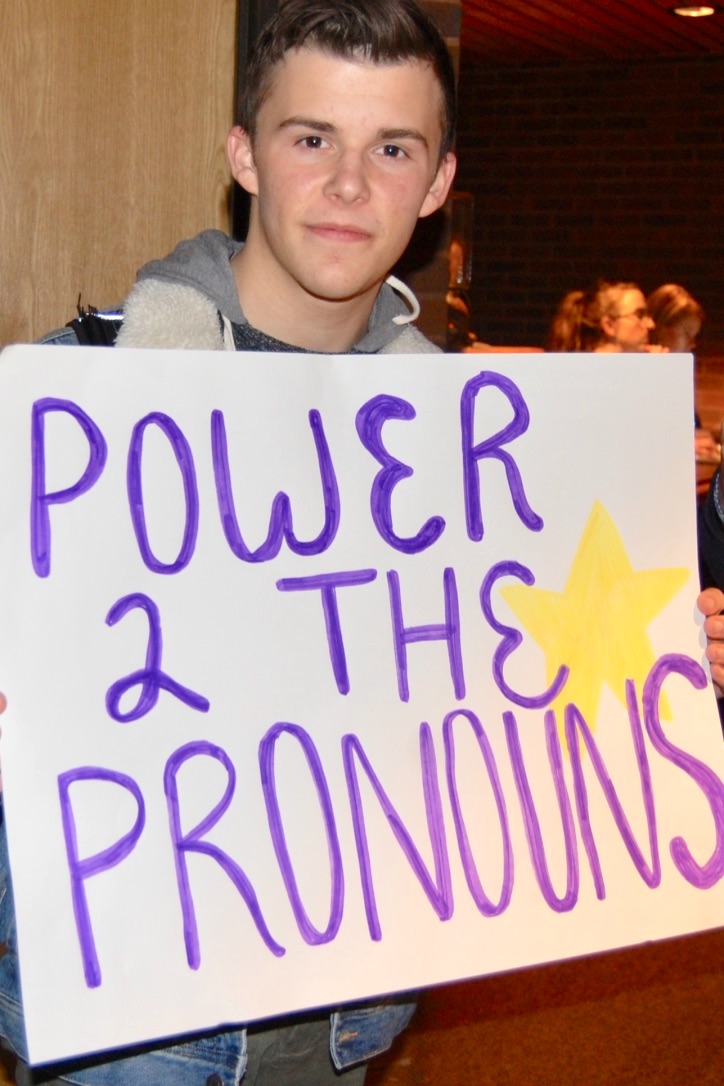
In addition to the policy discussion, the Faculty Senate approved the 2022-23 Morris campus academic calendar and the slate of candidates for the Faculty Consultative Committee, and Mostafa Kaveh, dean of the College of Science and Engineering, was introduced.
May 2, 2019 Meeting
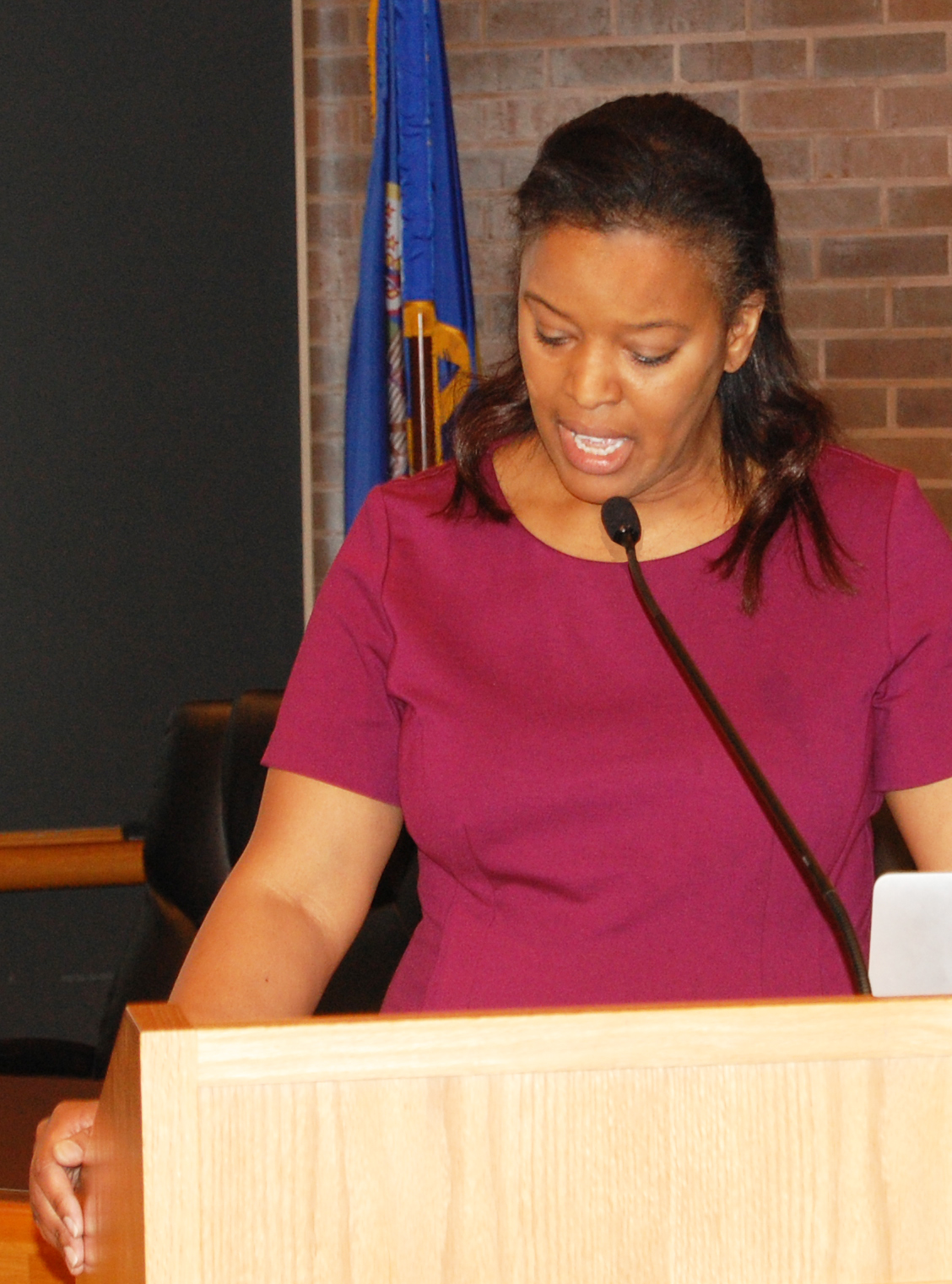
Other items of business included the presentation of the Outstanding Service to University Senate Governance Recognition, as well as President Kaler’s final report to the senate, which was met with a standing ovation and extended applause in appreciation of his presidency. Faculty and Senate Consultative Committee Chair Amy Pittenger thanked Kaler for his leadership and engagement with governance during his tenure as president.
Adjourned

Chair, Senate/Faculty Consultative Committees
The 2018-19 academic year has been an interesting and challenging time. We have experienced significant leadership transition, starting the year by selecting the 17th president of the University of Minnesota and ending the year by beginning the search for our next executive vice president and provost, and several other leadership positions just named or in the search process. These changes have generated renewed energy across our system, evidenced by the large number of people volunteering to serve in governance and other service roles.
But we have also been challenged this year, in particular with the Building Names and Institutional History effort. Understanding the complexity of the past in order to create a more just future is no small feat. Our interactions with each other regarding how to interpret the past and what actions to take have been difficult. I hope we can return to a place of respectful collaboration; we need all voices in this important and ongoing discussion.
It has been a privilege to serve as vice chair of the Faculty and Senate Consultative Committees with Professor Joseph Konstan and an added privilege to have been elected chair in January (serving through 2020) when Professor Konstan became associate dean of research in the College of Science and Engineering. I’m happy to report that Professor Phil Buhlmann was elected FCC vice chair in January (also serving through 2020). The FCC has provided input and advanced several University policy initiatives, including the President’s Initiative to Prevent Sexual Misconduct. Professor Buhlmann will serve as one of the University of Minnesota’s representatives on the National Academies of Sciences new Action Collaborative on Preventing Sexual Harassment in Higher Education.
As we look forward to the next year, the FCC will continue to explore the composition of the FCC, engage with the campus initiatives on free speech, engage in the liberal education and online learning discussions, and begin a new initiative to develop a combined mental health and disabilities services training series.
Finally, I want to recognize all the students, staff, and faculty involved in governance who volunteer their time and efforts to make the University of Minnesota’s governance model the robust system it is. I also want to thank President Eric Kaler, Provost Karen Hanson, and University administration for open and engaged consultation and commitment to shared governance as a value and a process. I attended the Big Ten Academic Alliance Faculty Governance Conference this past October; talking with our Big Ten colleagues further confirmed to me how lucky we are to have a long history of robust shared governance – it is at the center of why we are such an amazing institution.